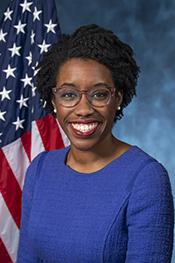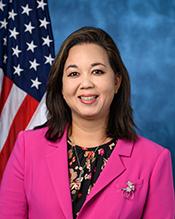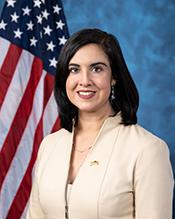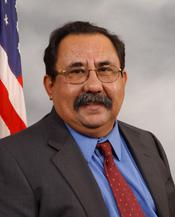0
0
0
Baby Changing on Board Act
12/31/2024, 9:06 PM
Summary of Bill HR 8995
Bill 118 hr 8995, also known as the Baby Changing on Board Act, is a piece of legislation introduced in the US Congress. The purpose of this bill is to require all commercial passenger aircraft to be equipped with at least one baby changing table in each lavatory. This would ensure that parents traveling with young children have a safe and sanitary place to change their baby's diapers while on board.
The bill specifies that the baby changing tables must be easily accessible and meet certain safety and sanitation standards. It also requires airlines to provide appropriate signage indicating the location of the changing tables on the aircraft.
Supporters of the Baby Changing on Board Act argue that it is a necessary measure to ensure the comfort and well-being of families traveling with infants. They believe that having access to a clean and convenient changing table on board will make air travel more manageable for parents and help to prevent unsanitary conditions in the aircraft lavatories. Opponents of the bill may argue that it imposes unnecessary regulations on airlines and could potentially increase the cost of air travel. However, proponents of the legislation argue that the benefits of providing a safe and sanitary space for parents to change their baby's diapers outweigh any potential drawbacks. Overall, the Baby Changing on Board Act aims to improve the travel experience for families with young children by ensuring that commercial passenger aircraft are equipped with the necessary facilities to accommodate their needs.
The bill specifies that the baby changing tables must be easily accessible and meet certain safety and sanitation standards. It also requires airlines to provide appropriate signage indicating the location of the changing tables on the aircraft.
Supporters of the Baby Changing on Board Act argue that it is a necessary measure to ensure the comfort and well-being of families traveling with infants. They believe that having access to a clean and convenient changing table on board will make air travel more manageable for parents and help to prevent unsanitary conditions in the aircraft lavatories. Opponents of the bill may argue that it imposes unnecessary regulations on airlines and could potentially increase the cost of air travel. However, proponents of the legislation argue that the benefits of providing a safe and sanitary space for parents to change their baby's diapers outweigh any potential drawbacks. Overall, the Baby Changing on Board Act aims to improve the travel experience for families with young children by ensuring that commercial passenger aircraft are equipped with the necessary facilities to accommodate their needs.
Congressional Summary of HR 8995
Baby Changing on Board Act
This bill requires Amtrak passenger rail trains to have a baby changing table in each Americans with Disabilities Act of 1990-compliant restroom. The bill applies to passenger rail trains that are (1) owned and operated by Amtrak, and (2) solicited for purchase after the bill's enactment for use by Amtrak.
Read the Full Bill
Current Status of Bill HR 8995
Bill HR 8995 is currently in the status of Bill Introduced since July 11, 2024. Bill HR 8995 was introduced during Congress 118 and was introduced to the House on July 11, 2024. Bill HR 8995's most recent activity was Placed on the Union Calendar, Calendar No. 711. as of December 12, 2024
Bipartisan Support of Bill HR 8995
Total Number of Sponsors
4Democrat Sponsors
4Republican Sponsors
0Unaffiliated Sponsors
0Total Number of Cosponsors
28Democrat Cosponsors
21Republican Cosponsors
7Unaffiliated Cosponsors
0Policy Area and Potential Impact of Bill HR 8995
Primary Policy Focus
Transportation and Public WorksPotential Impact Areas
- Child safety and welfare
- Disability and health-based discrimination
- National Railroad Passenger Corporation (Amtrak)
- Railroads
Alternate Title(s) of Bill HR 8995
To require Amtrak to install baby changing tables in all ADA-accessible bathrooms on passenger rail cars.
To require Amtrak to install baby changing tables in all ADA-accessible bathrooms on passenger rail cars.
Comments

Rey Alston
500
1 year ago
This bill requires changing tables in men's restrooms. Who benefits from this?
Sponsors and Cosponsors of HR 8995
Latest Bills
Preventing Elected Leaders from Owning Securities and Investments (PELOSI) Act
Bill S 1498December 11, 2025
Holocaust Expropriated Art Recovery Act of 2025
Bill S 1884December 11, 2025
Enduring Justice for Victims of Trafficking Act
Bill S 2584December 11, 2025
SPEED Act
Bill HR 4776December 11, 2025
Southcentral Foundation Land Transfer Act of 2025
Bill HR 3620December 11, 2025
Affordable HOMES Act
Bill HR 5184December 11, 2025
To reauthorize the Junior Duck Stamp Conservation and Design Program Act of 1994.
Bill HR 1098December 11, 2025
A bill to provide for an extension of the legislative authority of the National Emergency Medical Services Memorial Foundation to establish a commemorative work in the District of Columbia and its environs.
Bill S 2546December 11, 2025
Moab UMTRA Project Transition Act of 2025
Bill S 1321December 11, 2025
Federal Mechanical Insulation Act
Bill HR 3474December 11, 2025





